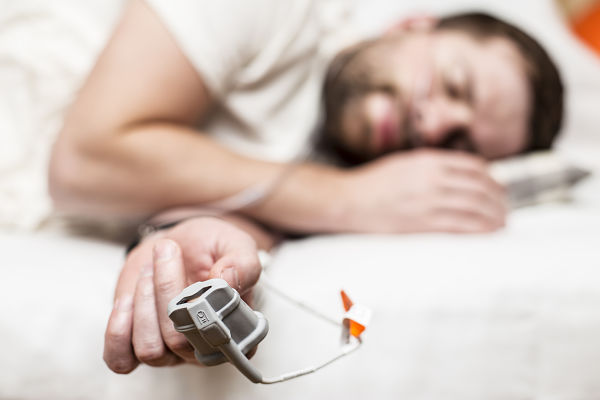The link between your thyroid and your respiratory system

You might be surprised to know that your thyroid hormones are very much involved in the smooth functioning of your respiratory system including the development of the lungs and the formation of “pulmonary surfactant”
Pulmonary surfactant is a complex mix of lipids and proteins which maintains the efficient working of the lungs as well as protecting them from injuries and infections from inhaled particles and micro-organisms.
There are various respiratory disorders which are linked with both overactive and underactive thyroid conditions
Untreated hyperthyroidism and respiratory disorders
Your overactive thyroid can lead to hyperventilation whereby you breathe more quickly and less deeply that normal.
This results in insufficient carbon dioxide in the blood which in turn can make you feel lightheaded and breathless as well as making your heart beat rapidly.
Untreated hypothyroidism and respiratory disorders
An overlarge thyroid can compress the upper airways leading to a feeling that you are short of breath as well as wheezing or coughing. In fact, a dry persistent morning cough when there are no other symptoms can sometimes lead to a diagnosis of an underactive thyroid.
An underactive thyroid can also result in your voice sounding hoarse.
25% of people with significant hypothyroidism are diagnosed with obstructive sleep apnoea. This is the most common type of apnoea and occurs when a person tries to breathe but the airway in the back of the throat is blocked.
In less common central sleep apnoea, pauses in breathing occur because the brain and the muscles that control breathing are incorrectly functioning. This type of sleep apnoea is often seen in younger people with untreated hypothyroidism, but it improves rapidly when put on levothyroxine
25% of people with hypothyroidism also have more than the usual amount of liquid in the lungs. This is usually in small amounts and rarely causes pulmonary problems. It’s thought that this occurs because of an increased permeability in your capillaries. Again, this can be remedied by hormone replacement therapy
Both hypothyroidism and hyperthyroidism cause weakness in the respiratory muscles and decrease the efficient function of your lungs. This can lead to you feeling tired, short of breath when exercising and a reduced ability to exercise at all
If you would like to read about this subject in more detail please follow the links below.
https://www.ncbi.nlm.nih.gov/pmc/articles/PMC5111483/#b4-cm-89-459
https://www.ncbi.nlm.nih.gov/pmc/articles/PMC5541969/
Although every effort is made to ensure that all health advice on this website is accurate and up to date it is for information purposes and should not replace a visit to your doctor or health care professional.
As the advice is general in nature rather than specific to individuals Dr Vanderpump cannot accept any liability for actions arising from its use nor can he be held responsible for the content of any pages referenced by an external link










